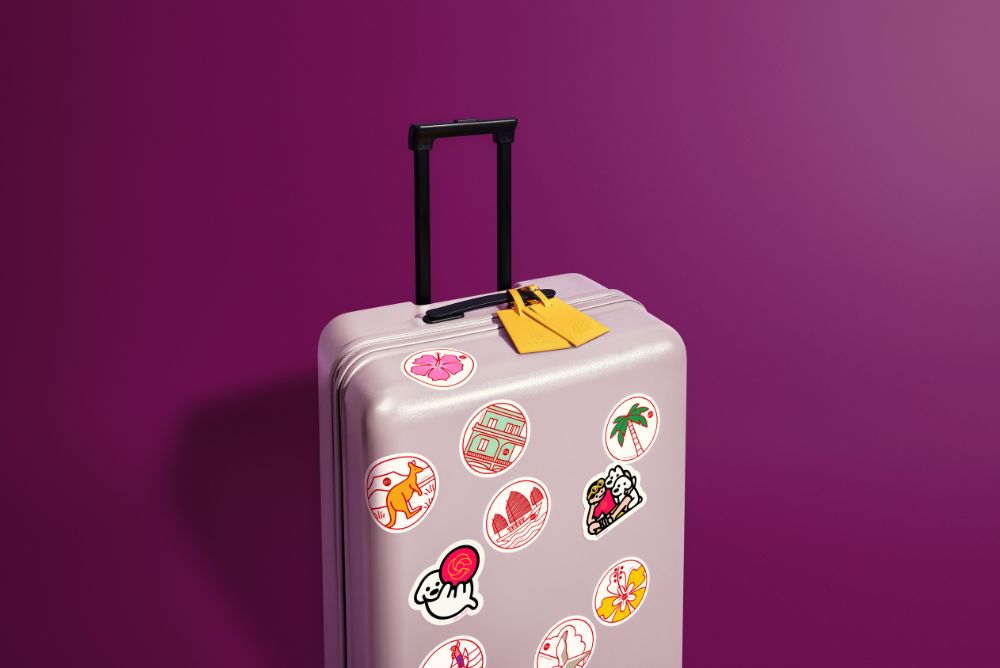Dufry’s contract talks ongoing; plans to open 50% of stores by end of August
By Charlotte Turner |
 Dufry was quizzed by analysts on the current status of renegotiated contracts with airports and landlords across its global network – in terms of concession fee adjustments and/or MAG relief – and how terms of such agreements can be expected to evolve in the coming 12-18 months. Dufry also revealed that it is ‘looking at’ the possibility of some additional government-backed loans.
Dufry was quizzed by analysts on the current status of renegotiated contracts with airports and landlords across its global network – in terms of concession fee adjustments and/or MAG relief – and how terms of such agreements can be expected to evolve in the coming 12-18 months. Dufry also revealed that it is ‘looking at’ the possibility of some additional government-backed loans.
Despite reporting a steep decline in turnover of -62% in H1 2020, during today’s results call with analysts and the media, Dufry revealed a gradual uplift in sales since May, as well as a surprising +20% increase in spend per head.
According to Dufry CEO Julián Díaz, in July the group’s sales had risen to represent roughly 20% of the sales taken at this time last year – up from just 9% in May and June – and in the first few days of August they reached 40% of the volume registered in the same period last year.
“During the first three days of August, we have reached around 40% of the sales made last year…We have worked on the various layouts of our stores and have been redirecting passenger flow to the products we believe will be most successful.”
Dufry plans to reopen another 250 stores by the end of August which would equal 50% of the global store network and roughly 70% of the business in terms of sales.
Interestingly, Díaz also revealed that spend per passenger is actually +20% year-on-year at the moment; something he said could be attributed to the difference in passenger profile compared to that of last year.
DUFRY CONSIDERS ADDITIONAL GOVERNMENT-BACKED LOANS
As reported earlier today, the leading global travel retail operator reported a -62% decline in turnover to CHF 1,586.9 million/$1.73bn for the first half of 2020 as a result of unprecedented levels of disruption for its retail operations across its global network of stores, triggered by Covid-19.
Blaming international travel restrictions implemented by governments worldwide and operational shutdowns of airports, cruise lines and other channels, Dufry reported a -60.6% decline in ‘organic growth’.
The company has reopened 1,000 shops already and by 31 August hopes to have opened 50% of the stores (1,250) across its global network. This will represent around 70% of the company’s sales capacity.
The company’s CFO, Yves Gerster, also revealed during the results call on Tuesday 3 August that Dufry is currently exploring the possibility of additional government-backed loans totalling approximate CHF 66m.
“On the government-backed loans, yes there are two or three additional ones we are currently looking at,” said Gerster. “One is in Africa, one is in the Mediterranean area and one is in the UK. They amount to around CHF 66m equivalent in total, give or take, maybe a little bit more.”
DIAZ GRILLED ON CONTRACTS
Following the presentation, Díaz and Gerster answered a long list of questions from various analysts; many of which centered on Dufry’s renegotiated concession fees, MAG waivers and rent agreements.
Up to 30 June, 2020, Dufry was able to close several agreements releasing partially or totally about CHF 161.8 million in MAG payments. Meanwhile, the management remains in negotiations with other lessors reviewing the lease terms, in order to accommodate these according to the market circumstances beyond 30 June.
In relation to these on-going negotiations, Dufry has already received offers granting further MAG relief in relation to the first half of 2020 for CHF 137.0 million, which, if and when such rent concessions are signed, will result in a de-recognition of lease obligations of the same amount.
Díaz stressed on more than one occasion during the call that it was difficult to comment on the specifics of the group’s contracts as their structure varies by region, by channel and by landlord. He insisted, it wasn’t just a case that the MAGs were being waived.
“We also have contracts that have been renegotiated in terms of the total amount which will be paid during 2020. There are also contracts that will consider the evolution of passenger traffic in 2021 [although these are yet to be officially processed in some cases – Ed].
“We have a significant number of contracts that have been renegotiated not only for 2020 but also for 2021.
PAIN IN SPAIN?
“What I can confirm is that in most cases the airports and landlords are very willing to support the company…in general terms, I would say we are close to reaching conclusions with around 70% of the total MAGs that we’ve tried to negotiate.”
There were a couple of questions about the company’s Spanish business, both in terms of the new terms of its contracts with AENA and about re-imposed quarantine measures for travellers returning from Spain to the UK.
As reported, Spain’s airport operator AENA has announced it has negotiated payment deferrals for commercial operators worth €18.6 million/$21.8 million as it strives to preserve the value of contracts.
“AENA and the Minister of Spain have officially recognised that during the pandemic that there is no MAG…[as the situation continues to evolve] depending on the level of passengers they will adapt the rent… I can tell you that from a practical point of view that in most of the cases the MAG or rents will be adapted to the reality of the business within the next two years.”
Regarding the new quarantine measures imposed by the UK on Spain, Díaz admitted that the gradual recovery had shifted in favour of its other locations.
STATE OF TRAFFIC RECOVERY
“We saw a growth in passengers to Spain and now this is slowing up, but is not negative. But most of these passengers that were booked on flights to Spain have now been diverted to other countries and we have seen a significant positive impact in Turkey and Greece mainly.
“What we have also seen is more domestic traffic in the US and in the European Union. International traffic is also gradually increasing in Europe.”
Towards the end of the call, Díaz was quizzed on inventory and how the company is appropriating stock.
“The quality of our existing inventory is very good and we don’t need to dispose of it…we need it to sell in our stores. As I said, the majority of the inventory is still very good and has a very good quality and will be sold in the shops that we hope to reopen very soon.”
Alcohol insights: Conversion up, spend down in Q4
Conversion of visitors in the alcohol category in duty free has risen to 54% in Q4 2023,...
Heinemann Asia Pacific makes breakthrough in New Zealand at AKL
Heinemann Asia Pacific is set to enter the New Zealand market with three new retail concepts at...
Men buy and spend more in travel retail says new research by m1nd-set
Men have a higher conversion rate and spend more when shopping in travel retail, says new...
-
 International,
International,Alcohol insights: Conversion up, spend down in Q4
-

-


In the Magazine
TRBusiness Magazine is free to access. Read the latest issue now.

 Trbusiness. The travel retail Trbusiness. The magazine for global retail and duty free professionals.
Trbusiness. The travel retail Trbusiness. The magazine for global retail and duty free professionals.

























